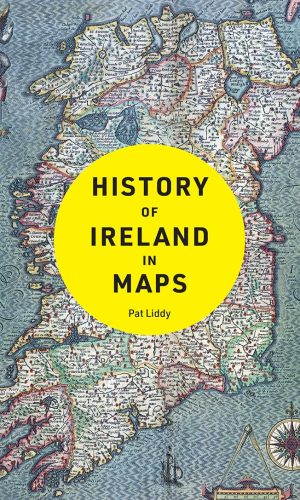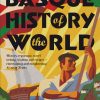The Basque History Of The World
£6.60
The Basques are Europe’s oldest people, their origins a mystery, their language related to no other on Earth, and even though few in population and from a remote and rugged corner of Spain and France, they have had a profound impact on the world. Whilst inward-looking, preserving their ancient language and customs, the Basques also struck out for new horizons, pioneers of whaling and cod fishing, leading the way in exploration of the Americas and Asia, were among the first capitalists and later led Southern Europe’s industrial revolution.
Mark Kurlansky, the author of the acclaimed Cod, blends human stories with economic, political, literary and culinary history to paint a fascinating picture of an intriguing people.
Read more
Additional information
| Publisher | New Ed edition (30 Sept. 2011), Vintage Digital |
|---|---|
| Language | English |
| File size | 2498 KB |
| Text-to-Speech | Enabled |
| Enhanced typesetting | Enabled |
| X-Ray | Enabled |
| Word Wise | Enabled |
| Sticky notes | On Kindle Scribe |
| Print length | 402 pages |
| Page numbers source ISBN | 0140298517 |










by David L Bernard
This is a good read to get a whirlwind history of the Basques and the world they have occupied. There are still some unanswered questions (the origin of their language, for example) as well as a lot of interesting new information for me (their great history of whaling, steelworks, Catholicism, etc.)
by Monsieur Pamplemousse
As I was planning a trip to Bilbao, I thought this book would be an ideal choice of background reading material. Up to a point, it was just that.
There is a lot of very interesting detail in this book, although in some places there is too much detail and insufficient in other places. The book certainly helped put my trip into perspective and enhanced the experience. The book is also challenging in places – I certainly disagree with the author’s views on the Guggenheim – and rightly so.
However, in many ways the book is an absolute disaster. It is very poorly written. It is often a difficult read because of the author’s tortuous syntax, which makes ideas hard to follow in places. It is also ungrammatical. For example, there are many occasions where capital letters follow colons.
In my opinion, the biggest fault is in the editing, or seeming lack of it. Many chapters ramble on in a confusing way, with lots of repetition. Some thoughts are repeated, almost word for word, in consecutive sentences. Better editing could have reduced the length of the book by about 100 pages and made it a more coherent read. Perhaps there would then have been room to include more details about certain things. I would certainly have liked to learn more about the basque beret and bacalao pil pil, for example.
In comclusion, an interesting book that could have been very much better.
by lilicangel2011
This is an interesting book to read a bit slow in places but above all very good and I’m learning about the Basque culture arrived on time and in good condition as well
by Mrs Bee
The author is clearly widely educated. It took a little while to get into the subject matter but it proved very absorbing. I took it with me while on a visit to the Basque Country.
by Adam Oliver
I heard about this book 10 years ago from a friend. It stayed with me for some reason, and I thought now I’d check out the culture and history of a fascinating people. So far I’m a couple of chapters in and it’s better than I had hoped, and I hoped for a very good book. Would recommend, a wonderful history of an incredible people written though recipes and anecdotes.
by M. Hillmann
This all encompassing history of a small region of Europe I have never been to and have no reason to empathise with, managed to provide compelling reading.
The book paints a picture of a violent and hard fought history of Basqueness with its rich oral Euskera language, the Basque legal Fueros system, its recipes and food and portraits of leading people. Though their land resides in three provinces of France and four of Spain, Basques have always insisted they have a country and they call it Euskadi. All the powerful peoples around them – the Celts and the Romans, the royal houses of Aquitaine, Navarra, Aragon and Castile; later the Spanish and French monarchies, dictatorships and republics – have tried to subdue and assimilate them and all have failed.
The history is violent from the Inquisition’s attempts in the 1600’s to weed out Basque witches to the brutal and complicated nineteenth century Carlist civil wars, the French Revolution that set off not only Spaniards against Basques, but also Basques against Basques to Franco’s civil war in the 20th century and then ETA.
Whilst the Basques are united by language and identify with their family home, they are an outward looking, entrepreneurial people of traders, fishermen and whalers who prior to Columbus were fishing and whaling as far away as Norway and Newfoundland. They probably had settled in the US prior to Columbus 1488 “discovery” and certainly provided Columbus with many of the captains of his fleet that found their way there. The Basques were not only leading industrialists, with Bilbao pioneering steel making, but also the first modern bankers in Spain.
Despite repeated invasions the Basques have maintained an identity with their Fueros law and their language. The Fueros was a remarkably progressive medieval law. Revised ion 1526 it was one of the first legal codes to outlaw the use of torture, ban debtors prison, protect citizens from arbitrary arrest and give women more consideration than most mediaval law – for example property rights.
Basque cooking and cuisine is a recurring theme of the book with recipes described in great detail and examples of Basque cuisine, for example on how to cook an eel and avoiding slime secreted from its glands spoiling the dish by plunging it into warm water. Basque eels are exported all over the world.
The promotion of the Basque language , Euskera, is the unifying factor and remains the first goal of the most nationalists. Franco tried to dilute it by drafting many non Basques into the Basque region but with the formation of ETA it became the defining factor of Basqueness. Traditionally an oral language with many dialects it was only in the 20th Century that it became a written language.
Portraits of leading characters are drawn from Jenaro Pildain a master of the pil pil cod dish to nationalists such as Sabino Arana who in 1893 organised public demonstrations declaring Basque nationalism and the poets like Jose Antonio Aguirre
A rich and thought provoking book.
by Amazon Customer
Cracking read, although could do with an updated chapter on the dissolving of ETA and the consequences this has had.
by Beñat
As a basque, I bought this book full of curiosity. It is great to look at our history from an outsider’s point of view.
I think it is very well written and very nicely documented and that it is based in facts rather than in historical points of view.
I find it very interesting for basques and also for foreigners indeed.